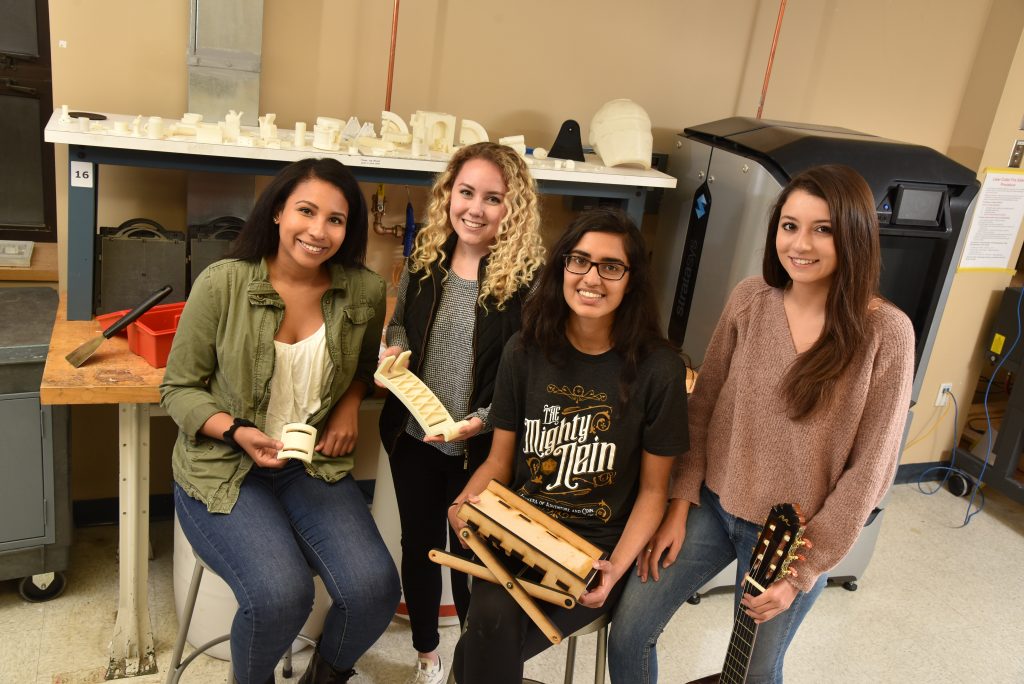
In Baltimore City, more than 10 percent of residents under age 65 have a disability, and many of the disabled live in poverty, which makes it financially untenable for most to procure custom devices to accommodate their disability.
Enter Volunteers for Medical Engineering, a Baltimore-based group that’s partnered with the American Society of Mechanical Engineers to use volunteer engineers to create individually designed devices for disabled people in need.
There are several VME chapters at local colleges. At WSE, the chapter is eight students strong. So far, the team has used custom design to help several people with disabilities reach their goals, says mechanical engineering fourth-year student Caterina Esposito, past Johns Hopkins VME coordinator.
One was a boy with cerebral palsy whose parents requested a scooter that he could lay on and use his arms and legs to propel forward, taking advantage of his limited limb strength. Another was a girl with Cornelia de Lange syndrome, a congenital condition that causes short stature and mobility issues, among other symptoms. Her parents asked the school’s student volunteers to craft a custom walker to accommodate her diminutive size.
More recently, current Johns Hopkins VME coordinator Radha Deshmukh says, the team is working with Parkinson’s disease patients who take guitar lessons as therapy at the Peabody Institute. The engineers’ goal: to create custom guitar steps to accommodate patients’ tremors. These and all the other VME devices have required countless hours of observing and interviewing the end users, taking detailed measurements and iteration after iteration to make a successful product.
The design process is rarely straightforward, Deshmukh says. For example, in a recent project to create a custom tricycle for a boy with dwarfism, the team spent months modifying a commercial vehicle, only to find out at delivery that the recipient had grown, requiring it to start again nearly from scratch. But even with the intense effort each project requires, she says, the rewards are well worth it.
“Not only do we get to do what we love, we’re also helping individuals and their families,” says Deshmukh, a fourth-year student in mechanical engineering. “It’s making us better engineers, students, and people.”




